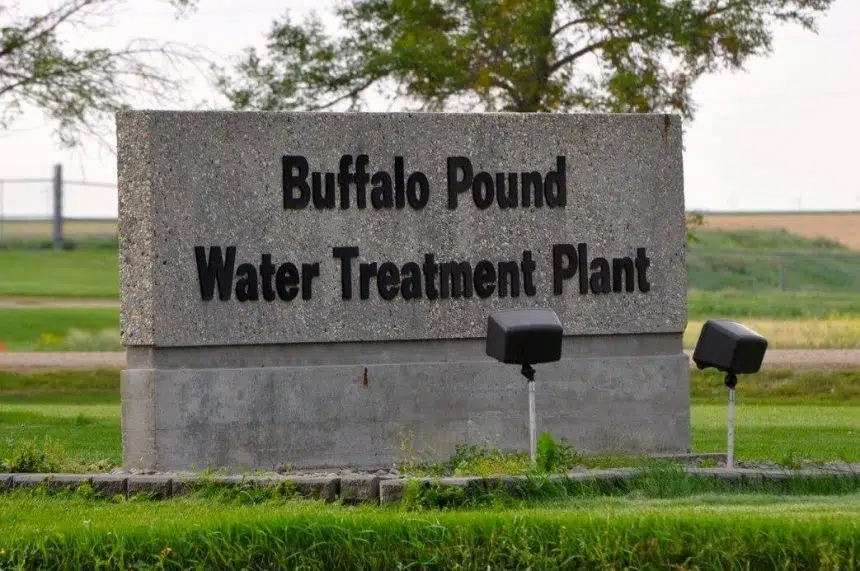On Wednesday afternoon, Regina’s city council will vote on whether to allow the Buffalo Pound Water Treatment Plant to seek a loan for its renewal project – a renewal that will be distinctly green.
Ryan Johnson, the CEO of the plant, said the renewal is happening because of the age of the plant and to keep it running, but he said the leadership at the plant also wants to improve its “environmental stewardship”.
Johnson said the plant is looking to get LEED certification and to work to Envision standards.
LEED is an independent verification that a project was designed and built with an aim on “high performance in key areas of human and environmental health.”
Envision is a rating system with criteria on environmental, social, and economic impacts.
The new design is also looking to reduce the plant’s energy consumption.
“So we’re looking at using renewable energy, specifically solar at this point in time. We’re looking at putting in 2 to 2.5 megawatts of solar power,” explained Johnson.
He said that can be scaled up in the future with more solar, wind or geothermal power.
Johnson said the plant is also in talks with SaskPower about a new program where it could pay a premium for power derived from renewable resources.
“What we’re trying to do is minimize our carbon footprint, really, and use as much renewable energy as we can,” said Johnson.
The plan is also to do things like use LED lighting and better insulation, and install new and more precise equipment.
“At the end of the day we’re very encouraged that, even with a larger plant running full out, we would actually have a reduced carbon footprint than what we do today – provided that we put in the solar and (purchase) green power from entities like SaskPower,” said Johnson.
The plant gets a renewal every 25 to 30 years, so Johnson said this has been in the works for years. He said officials identified risks and issues the plant was having, then also tried to look ahead to what regulations and guidelines could look like in the next 30 years.
The whole plan is expected to cost about $250 million, according to Johnson. About $190 million is expected to come from higher levels of government.
Johnson said part of its grant request to the federal government included a climate lens report, which helped the plant identify areas it wanted to focus on in the design. He explained the federal government is encouraging projects to be more climate conscientious and wants facilities to be more resistant to climate change.
Johnson said it makes a lot more sense to put in green initiatives now than trying to change things in a few years.
“If you do a retrofit later you’re paying a cost premium for that,” said Johnson.
On Wednesday, Regina city council will vote on whether to allow the plant to seek a loan for the remaining $60 million, which will need to be in place for the project to receive a grant from the federal government. Moose Jaw is a part-owner of the plant with Regina and passed its approval for the loan last Friday.
If everything goes as planned, Johnson said construction could start late this year and be finished in 2025.







